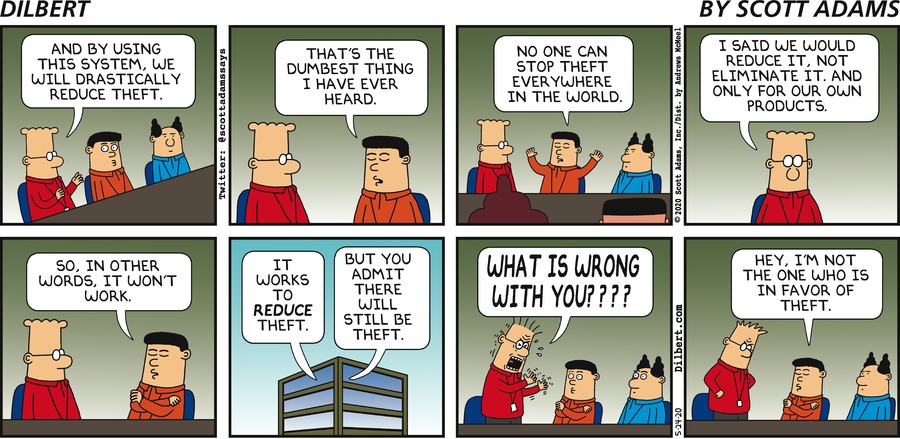
This technique is employed big time by the self styled “moral leaders” of our society.
We can always imagine better than anybody can achieve, so you are guaranteed to be right when you say that anybody, anywhere at anytime is not living up to standard. You can also seize the rhetorical high moral ground. The only problem is that it is completely dishonest and ends up harming everyone.
I spent my career trying to explain the USA to foreign audiences. When I gave a lecture, I would usually start by saying that anything they think about the USA is probably true. We have great examples of the good and bad in humanity within our borders. We strive to be “more perfect” which implies we will never get there. But we had to apply the “compared to what?” criterion, the only valid measure.
This was not a defensive crouch. It rather expressed a belief in diversity, progress and continual improvement, as well as a preference for the real world good over the ethereal perfection. America, I explained, is lived better than it is often portrayed, and it was not in spite of our lack of perfection but because of it. When I gave this talk before the fall of the Soviet Union, I used to digress into the Soviet constitution, which I said was much better than ours in theory, but horribly wrong in practice. It was good to be compared to such a benighted place.
Most of my talks were give-and-take, so each was different and responded to peculiar audience preference. Each was different and adaptive. In all modesty, I was very good at these things, and always got good reviews and request. I brag about this for a specific purpose here. What made them good was the give-and-take. I never knew exactly what I would say.
And I would close my program with a recognition of that. I would explain that the reason that they liked the program is that they had helped build it, that I could not do it w/o them, and that the reason we could do so well is that we were not scripted. My implication was that we were seeking something good, but did not expect perfect.
